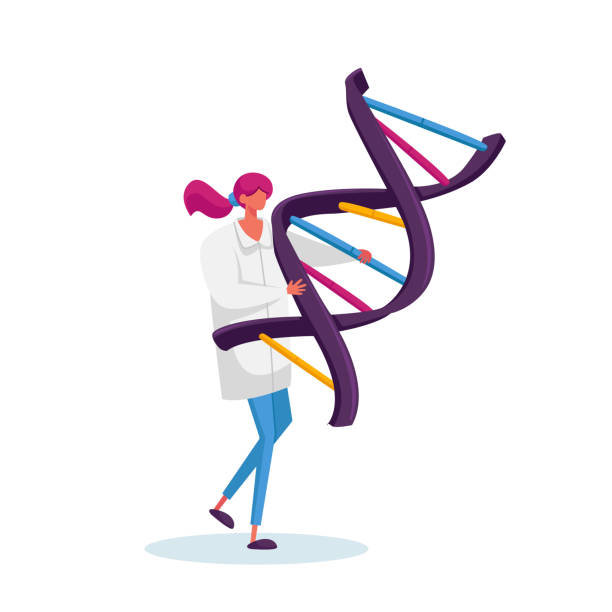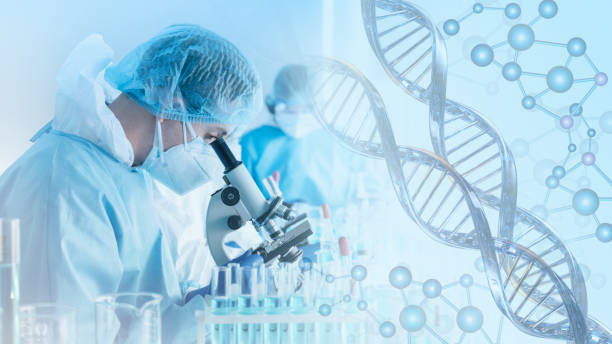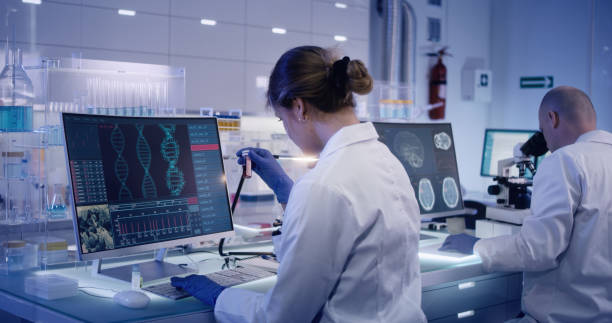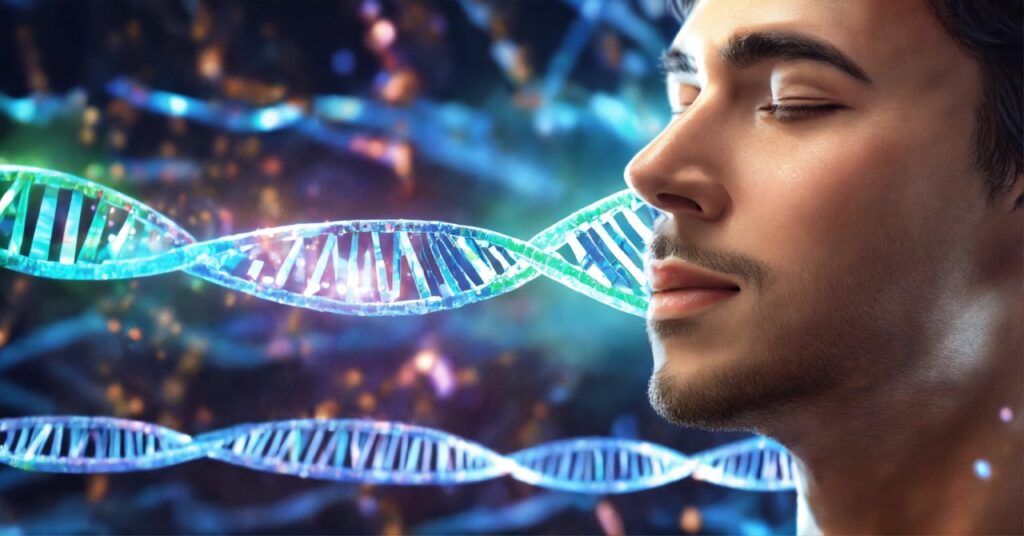Health Conditions
Are Some Diseases Genetic without Being Inherited?
Genetic diseases and hereditary diseases are frequently used interchangeably, however they pertain to distinct aspects of disease transmission. To completely appreciate the concept of genetic diseases that are not inherited, it is critical to distinguish between these two concepts.
Genetic diseases are caused by mutations or alterations in specific genes. These mutations can be inherited from one or both parents, or they can develop spontaneously. Hereditary diseases, on the other hand, are those that are passed on from one generation to the next by genes. In other words, hereditary diseases are always genetic; nevertheless, not all genetic diseases are hereditary.
The difference between genetic and hereditary disorders is critical for providing correct information and proper medical care. In this article, we will look at the interesting realm of genetic and hereditary disorders, including examples of conditions that are genetic but not hereditary. This allows us to obtain a better grasp of the intricate link between genetics and disease transmission.

What Does It Mean for a Disease to Be Genetic?
When we say an illness is genetic, we mean it is caused by a mutation or change in one or more genes. These mutations can be inherited from one or both parents, or they might develop spontaneously during a person’s lifespan. Individuals’ susceptibility to certain diseases is heavily influenced by their genetic composition.
Genetic diseases can take many forms, ranging from single-gene disorders like cystic fibrosis or sickle cell anemia to complicated ailments influenced by several genes and environmental variables like diabetes or cancer. The discovery of specific genes that cause certain diseases has considerably improved our understanding, diagnosis, and treatment of genetic disorders.
Can Diseases Be Genetic But Not Hereditary?
While this may appear contradictory, an illness can be genetic but not hereditary. In some circumstances, the disease is caused by a spontaneous genetic mutation, rather than one inherited from the parents. This occurrence is referred to as a de novo mutation.
De novo mutations are changes to the DNA sequence that appear for the first time in a family. These mutations can happen during the production of sperm or egg cells, or early in embryonic development. As a result, the disease-causing mutation exists in the affected individual but was not acquired from either parent.
This prevalence of de novo mutations explains why certain genetic illnesses might manifest in families with no history of the condition. De novo mutations can cause illnesses such as achondroplasia, the most prevalent kind of dwarfism, and neurofibromatosis type I.
Examples of Genetic Diseases That Are Not Hereditary
De novo mutations can cause genetic illnesses that are not hereditary. These disorders frequently startle families that have no history of the disease. Let us consider some examples:
- Achondroplasia: Achondroplasia is a genetic disorder characterized by short stature and disproportionately short limbs. It is caused by a specific mutation in the FGFR3 gene. While the condition can be inherited from one affected parent, it can also occur as a result of a spontaneous mutation.
- Neurofibromatosis type I: Neurofibromatosis type I is a genetic disorder that causes tumors to form on nerve tissue. It is caused by mutations in the NF1 gene. In some cases, the mutation can arise spontaneously in an individual with no family history of the condition.
- Osteogenesis Imperfecta: Osteogenesis Imperfecta, also known as brittle bone disease, is a genetic disorder characterized by fragile bones that break easily. It is caused by mutations in the COL1A1 or COL1A2 genes. While the condition can be inherited, it can also occur due to de novo mutations.
These examples highlight that genetic diseases can indeed be genetic but not hereditary, challenging the notion that all genetic conditions are passed down from parents.

Factors That Can Contribute to the Development of Genetic Diseases
Several factors can contribute to the development of genetic diseases, whether they are hereditary or not. Understanding these factors is crucial for identifying individuals at risk and implementing appropriate preventive measures or treatment strategies.
- Inherited Mutations: Inherited mutations are the leading cause of genetic disorders. These mutations are passed down from one or both parents and can appear in a variety of ways, depending on the genes involved.
- De Novo Mutations: As previously stated, de novo mutations can occur spontaneously during the creation of sperm or egg cells, as well as early in embryonic development. These mutations can cause genetic illnesses that are not inherited from the parents.
- Environmental Factors: Exposure to specific chemicals, poisons, or viruses can interact with genetic predispositions, increasing the likelihood of acquiring a genetic disease. For example, while certain gene changes may enhance cancer susceptibility, exposure to carcinogens is also required for the disease to develop.
- Gene-Environment Interactions: The interaction of genetic components and environmental influences is a complex process. Some people may have a genetic susceptibility to a disease, but the ailment does not emerge until specific environmental triggers are present.
Understanding these factors can aid in unraveling the complexities of genetic diseases and provide insights into prevention, early detection, and treatment options.
The Role of Environmental Factors
While genetic abnormalities are the primary cause of genetic disorders, environmental variables can have a significant impact on the symptoms and severity of these conditions. Certain environmental factors can activate or repress the consequences of genetic abnormalities, resulting in different disease manifestations.
Individuals with a genetic predisposition to asthma, for example, may develop the ailment only after being exposed to specific allergens or environmental toxins. Similarly, certain genetic abnormalities linked to cancer may necessitate exposure to carcinogens before the disease develops.
The complex link between genetics and the environment emphasizes the significance of multifaceted methods to understanding and treating genetic illnesses. Recognizing and controlling environmental risk factors can help avoid or reduce the impact of hereditary illnesses.

Genetic Testing and Its Importance
Genetic testing has transformed the world of medicine by allowing the detection of genetic variants related with a variety of disorders. It entails testing a person’s DNA to find changes in specific genes that may raise the likelihood of getting certain illnesses.
Genetic testing is critical in diagnosing both hereditary and non-hereditary genetic disorders. It can aid in diagnosing individuals with certain symptoms, determining the likelihood of developing certain diseases, and guiding treatment recommendations.
Furthermore, genetic testing can help uncover de novo mutations. The genetic makeup of an affected individual and their parents can be examined to establish whether the mutation happened spontaneously or was inherited.
hereditary testing tools have become more accessible and accurate, enabling early detection and intervention in hereditary illnesses.
Genetic Counseling
Genetic counseling is a specialist discipline that informs individuals and families about the genetic components of various diseases as well as the dangers connected with them. While Genetic counselors are trained experts who may assist patients in understanding the implications of genetic testing results, determining their risk of developing specific disorders, and making informed healthcare decisions.
Genetic counseling is especially beneficial for people who have a family history of genetic diseases or are concerned about their genetic propensity to certain conditions. It can assist individuals in understanding the complexity of genetic illnesses, researching available testing choices, and assessing the potential impact on themselves and their families.
Genetic counseling enables people to make informed decisions about their health and well-being by offering them support, education, and assistance.

The Impact of Genetic Diseases on Individuals and Families
Genetic illnesses can have a significant influence on individuals and families. These illnesses frequently create particular challenges, such as physical limits, chronic health problems, and emotional and psychological distress.
For people with genetic illnesses, symptom management, regular medical interventions, and potential constraints on everyday activities can all have a substantial impact on their quality of life. Living with a genetic condition can be physically and emotionally taxing, necessitating extensive medical care and support systems.
Families of people with hereditary illnesses may face additional challenges. They may need to navigate complex healthcare systems, seek out specialized treatments, and make critical decisions about genetic testing, family planning, and long-term care.
Recognizing the impact of genetic illnesses on individuals and families is critical, as is advocating for the necessary assistance and resources to improve their quality of life.
Conclusion
In conclusion, the terms “genetic” and “hereditary” are often used interchangeably, but they have distinct meanings in the context of disease transmission. While all hereditary diseases are genetic, not all genetic diseases are hereditary.
A disease can be genetic if it is caused by a mutation in one or more genes, whether inherited or acquired spontaneously. On the other hand, hereditary diseases are strictly those that are passed down from parents to their offspring through their genes.
Understanding the complexities of genetic diseases that may not be hereditary is essential for accurate information dissemination and appropriate medical care. De novo mutations can give rise to genetic diseases in individuals with no family history of the condition.
Factors such as inherited mutations, de novo mutations, environmental influences, and gene-environment interactions contribute to the development of genetic diseases. Genetic testing and counseling play pivotal roles in identifying individuals at risk, understanding their genetic predisposition, and making informed healthcare decisions.
Trusted Health, Wellness, and Medical advice for your well-being


